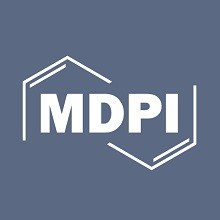
دانلود مقاله عوامل تاثیرگذار بر اثربخشی حسابرسی داخلی
چکیده
مقدمه
مروری بر مطالعات پیشین و فرضیه ها
روش شناسی تحقیق
تجزیه و تحلیل نتایج
نتیجه گیری
منابع
Abstract
Introduction
Literature Review and Hypotheses
Research Methodology
Analysis of Results
Conclusions
References
چکیده
این مطالعه به بررسی چهار عامل مؤثر بر اثربخشی حسابرسی داخلی در ویتنام پرداخته است، یعنی استقلال حسابرسی داخلی، شایستگی حسابرسان داخلی، حمایت مدیریت از حسابرسی داخلی و کیفیت کار حسابرسی داخلی. ارزیابیهای کمی و کیفی شامل مدل رگرسیون لجستیک و سایر تحلیلها با استفاده از نرمافزار SPSS انجام شد. از طریق مصاحبه های عمیق نیمه ساختاریافته و یک نظرسنجی آنلاین، 144 پاسخ از حسابرسان داخلی ویتنامی شرکت های غیرمالی فهرست شده در بازار سهام ویتنام در سال 2021 به دست آمد. پس از پردازش داده ها، نتایج دو عامل (استقلال حسابرس داخلی و مدیریت) را نشان داد. حمایت از حسابرسی داخلی با تأثیر مثبت بر اثربخشی حسابرسی داخلی، در حالی که شایستگی حسابرسان داخلی و کیفیت کار حسابرسی داخلی تأثیری بر اثربخشی حسابرسی داخلی ندارد.
توجه! این متن ترجمه ماشینی بوده و توسط مترجمین ای ترجمه، ترجمه نشده است.
Abstract
This study investigated four factors affecting internal audit effectiveness in Vietnam, namely, independence of internal audit, the competence of internal auditors, management support for internal audit, and quality of internal audit work. Quantitative and qualitative evaluations were conducted, including a logistics regression model and other analyses, using SPSS software. Through semi-structured in-depth interviews and an online survey, 144 responses were obtained from internal Vietnamese auditors of nonfinancial companies listed on the Vietnamese stock market in 2021. After processing the data, the results revealed two factors (independence of internal auditor and management support for internal audit) with a positive influence on internal audit effectiveness, whereas the competence of internal auditors and quality of internal audit work did not affect internal audit effectiveness.
Introduction
Changes in the economy and political environment, along with advances in information technology, have significantly affected corporate governance. Enterprises are facing many business risks, leading to many different types of financial fraud in recent years. The detection and prevention of business risks and large-scale financial fraud pose several challenges for boards of directors and senior management, with respect to internal audit activities. One of the risks faced by organizations is data protection (Pavelek and Zajíčková 2021). To eliminate possible risks and improve the performance of activities, organizations should perform organizational audits (Mucha 2021), particularly internal audits. In order to strengthen the effectiveness of internal audits, their characteristics should be investigated in the framework of the legal system and professional standards. In particular, following the economic collapse in the face of fraudulent financial reporting in the 20th century, government agencies and professional associations reformed the legal system to enhance internal audit effectiveness in corporate governance, encompassing risk management and control processes. According to the IPPF (2017), internal auditing is an independent, objective assurance and consulting activity designed to add value to and improve an organization’s operations. It supports an organization in accomplishing its objectives through a systematic approach and follows an appropriate implementation process to assess and enhance the effectiveness of internal control, risk management, and governance processes. Internal audit effectiveness is associated with the way in which an internal audit helps an organization obtain its goals and creating added value for activities in various aspects. Due to the important role of internal audits in an organization, their effectiveness has been the subject of research around the world (Mihret and Yismaw 2007; Ahmad et al. 2009; Arena and Azzone 2009; Baharud-din et al. 2014; Alzeban and Gwilliam 2014; Sakour and Laila 2015; Dellai and Omri 2016). However, studies have typically focused on factors affecting internal audit effectiveness in the public and banking sectors, whereas the research on internal audit effectiveness in listed companies is limited.
Conclusions
The results of the regression analysis show that the independence of an internal audit has a positive impact on the effectiveness of an internal audit, which is consistent with the results of Mutchler (2003); Alizadeh (2011); Baharud-din et al. (2014); and Al-Akra et al. (2016). Internal auditors have a right to unrestricted access to documents, personnel and other departments in collecting audit evidence, avoiding conflicts of interest between internal auditors with other department, senior management, and the board of directors, which is similar to Goodwin and Yeo (2001) and Christopher et al. (2009). Therefore, hypothesis H1 is accepted.
Hypothesis 1 (H1). Independence of the internal audit has a positive influence on the effectiveness of the internal audit.
Hypothesis 2 (H2). The competence of internal auditors has a positive influence on the effectiveness of the internal audit.
Hypothesis 3 (H3). Management support for internal audits has a positive influence on the effectiveness of the internal audit.
Hypothesis 4 (H4). The quality of an internal audit positively influences the internal audit effectiveness.
